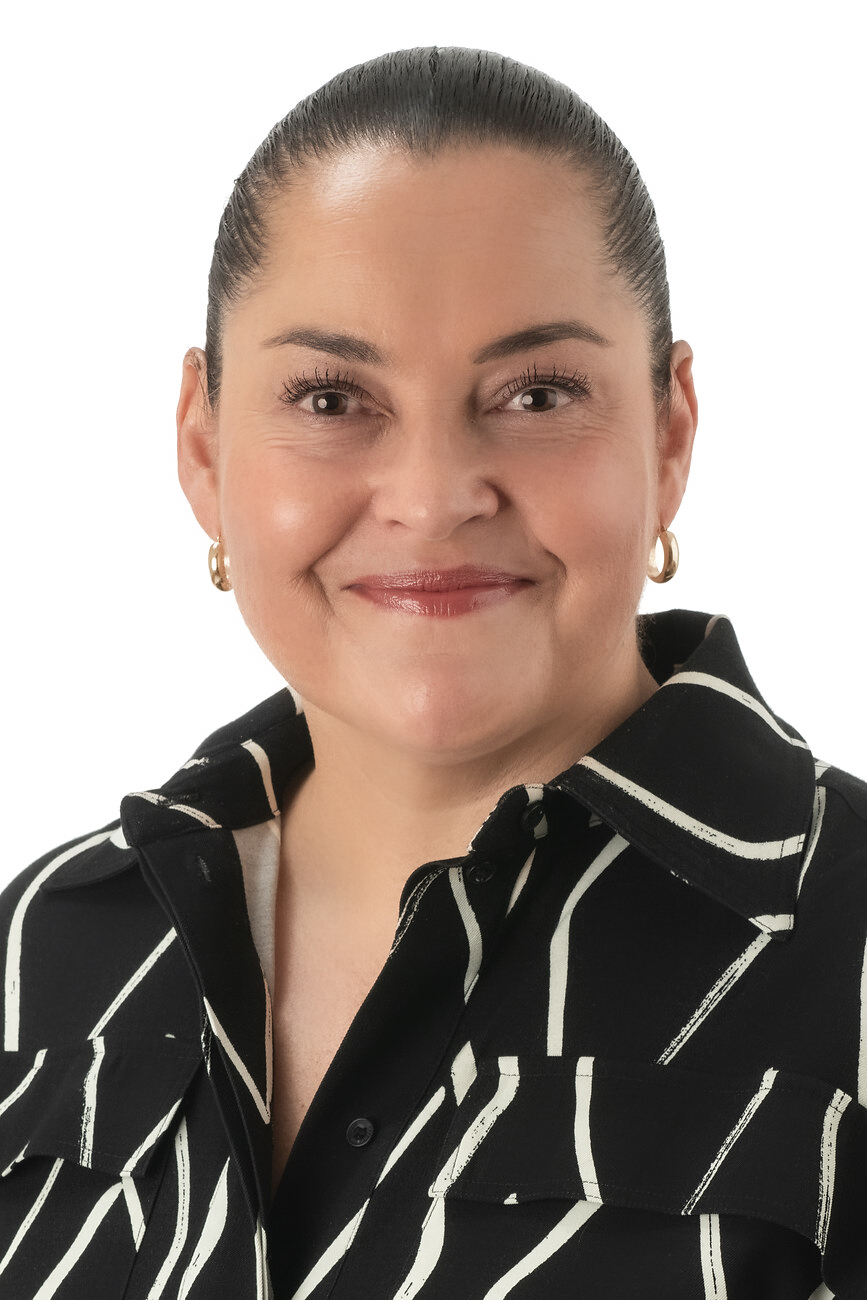
Melissa Bland
Primary School Principal
Primary School is a time of discovery, curiosity, and growth. It’s a foundational period in every child’s journey where they begin to explore the world around them, develop their sense of self, and build the skills they need for the future.
Our Primary School programme is built on the belief that children are naturally curious, creative, and capable of great things. Guided by the International Baccalaureate® (IB) Primary Years Programme (PYP), our curriculum supports young learners in developing critical thinking, problem-solving, and a love for exploration through inquiry-based learning.
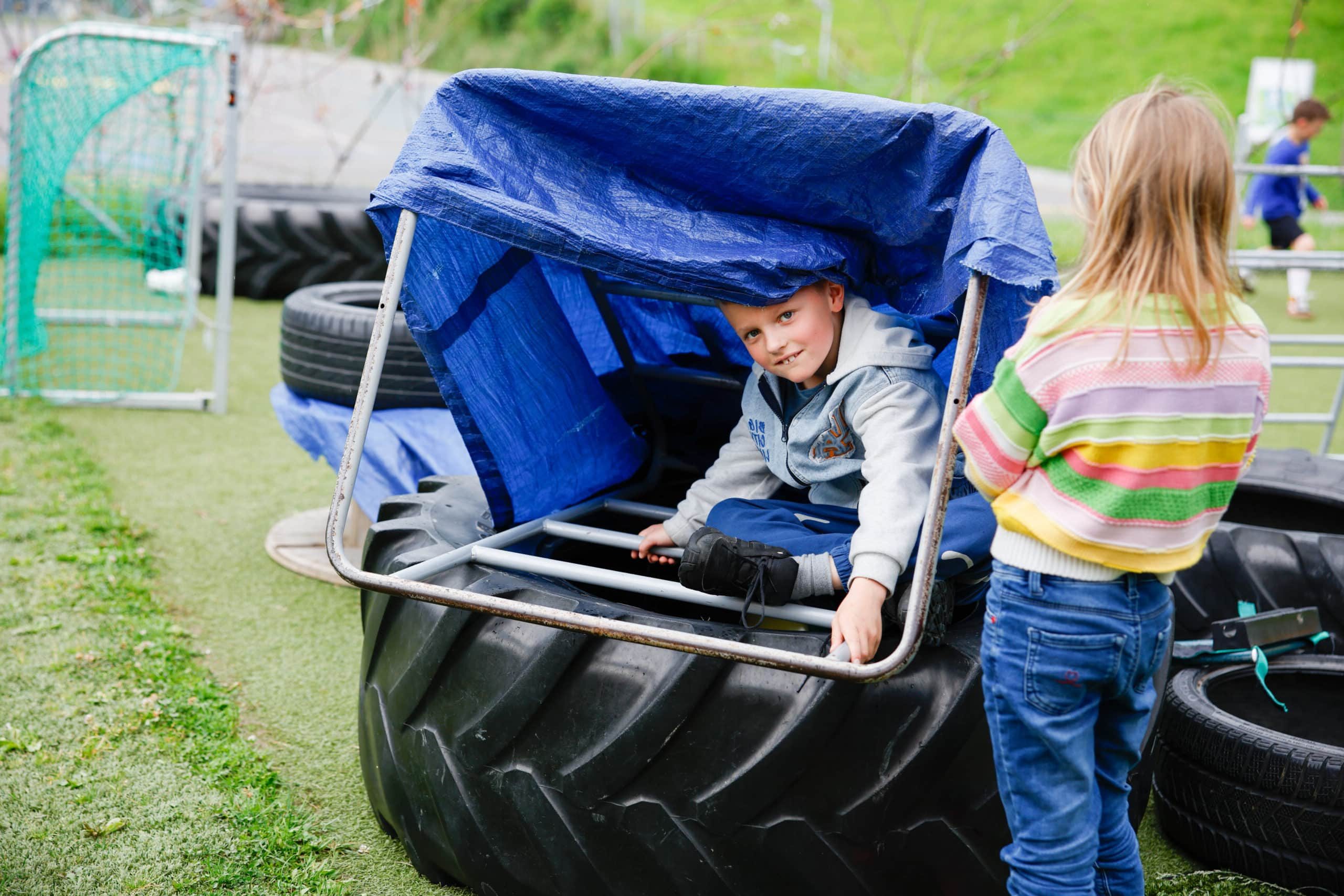
Located in the heart of Zug, surrounded by forests and open fields, our campus is a space where children can grow. Our Primary School offers a supportive, engaging environment where every student is encouraged to take risks and discover new ideas.
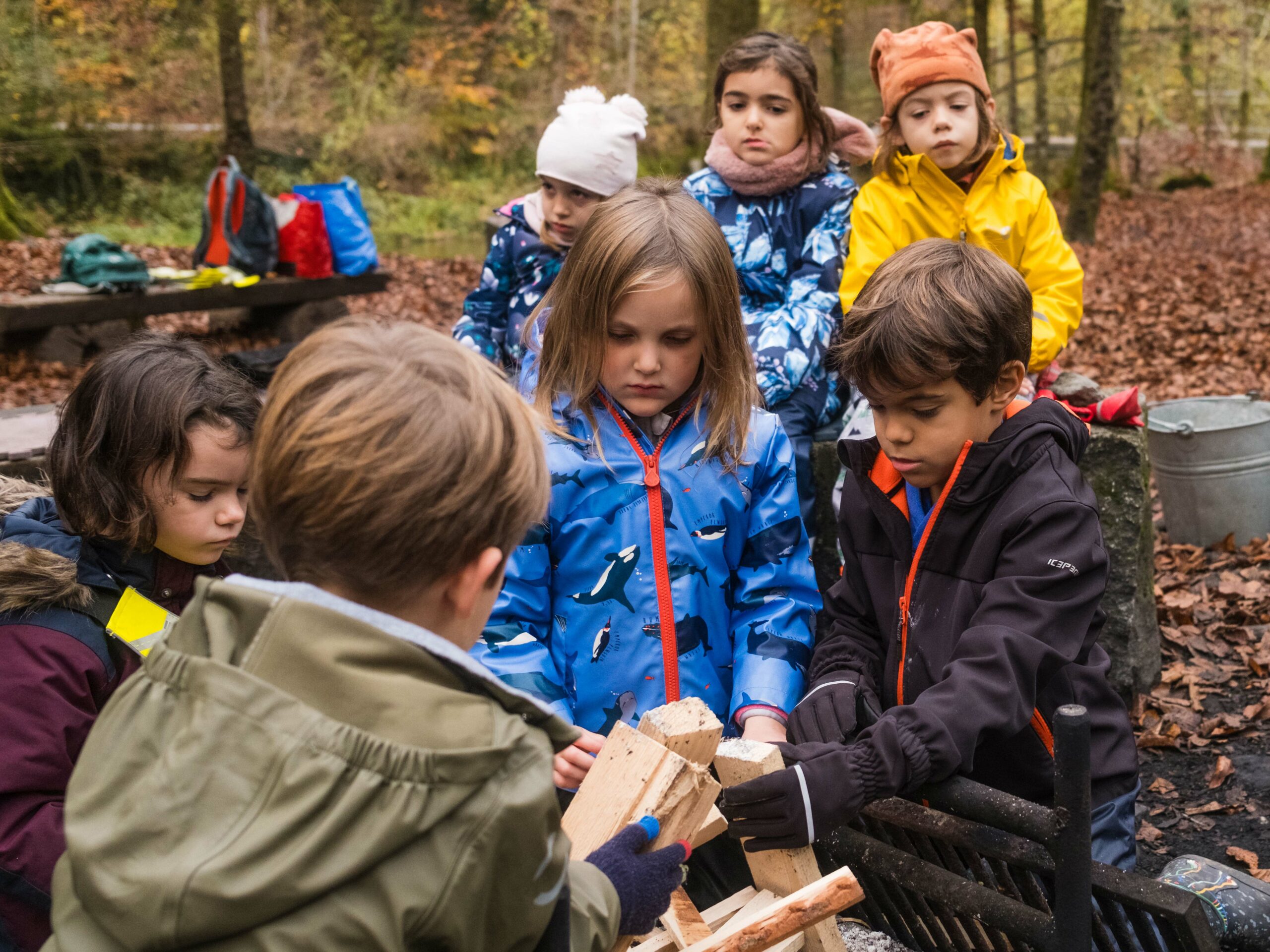
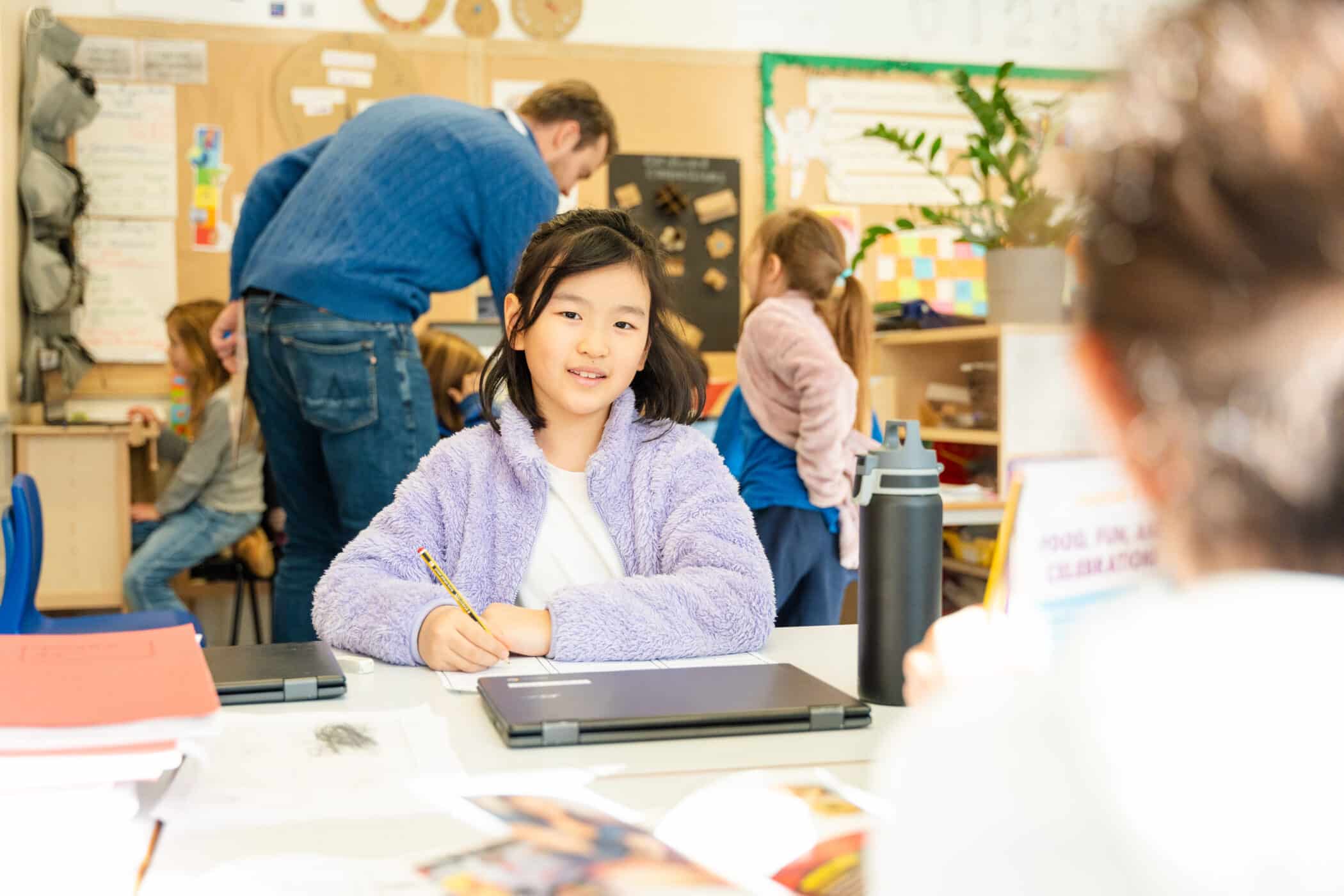
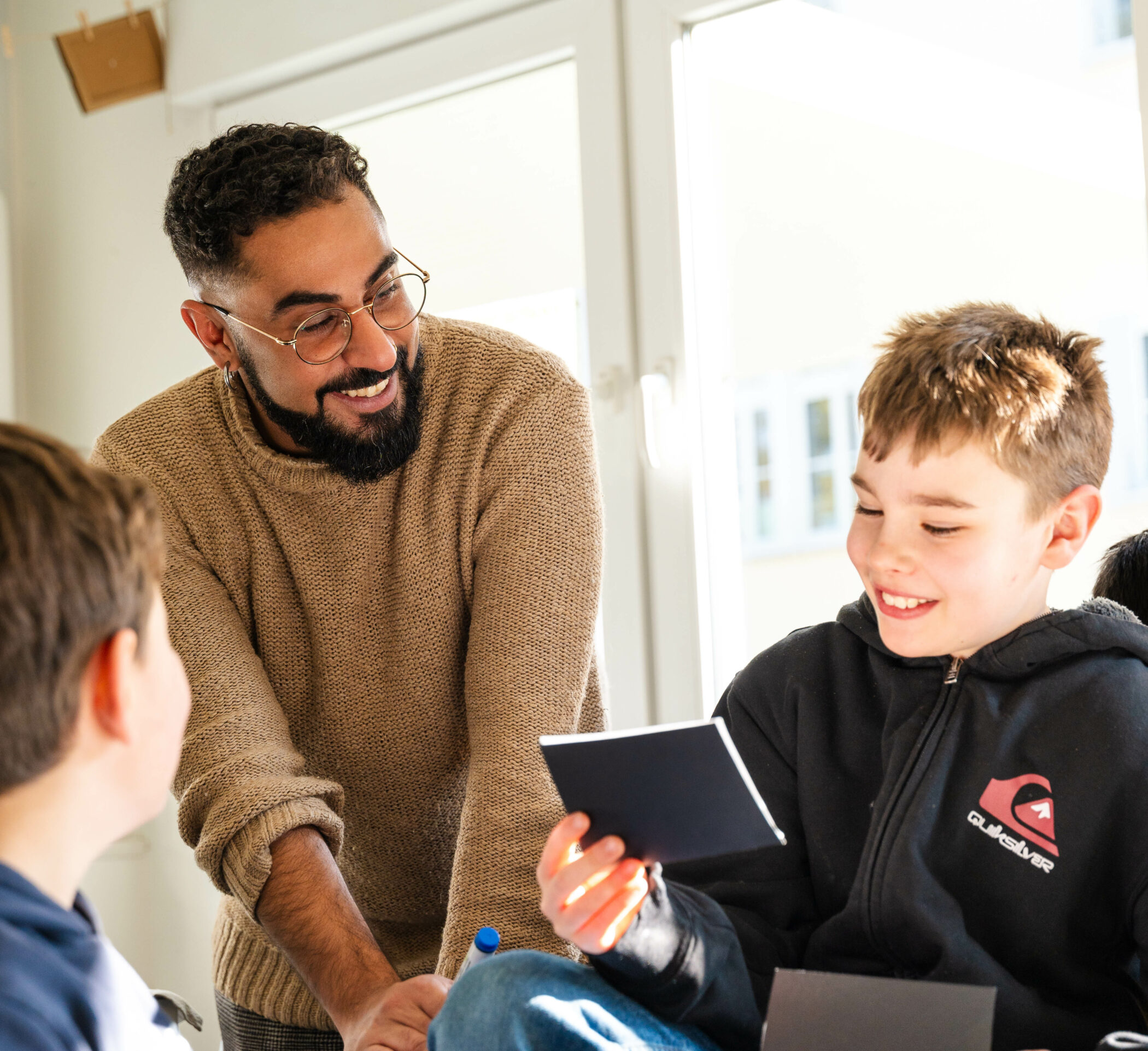
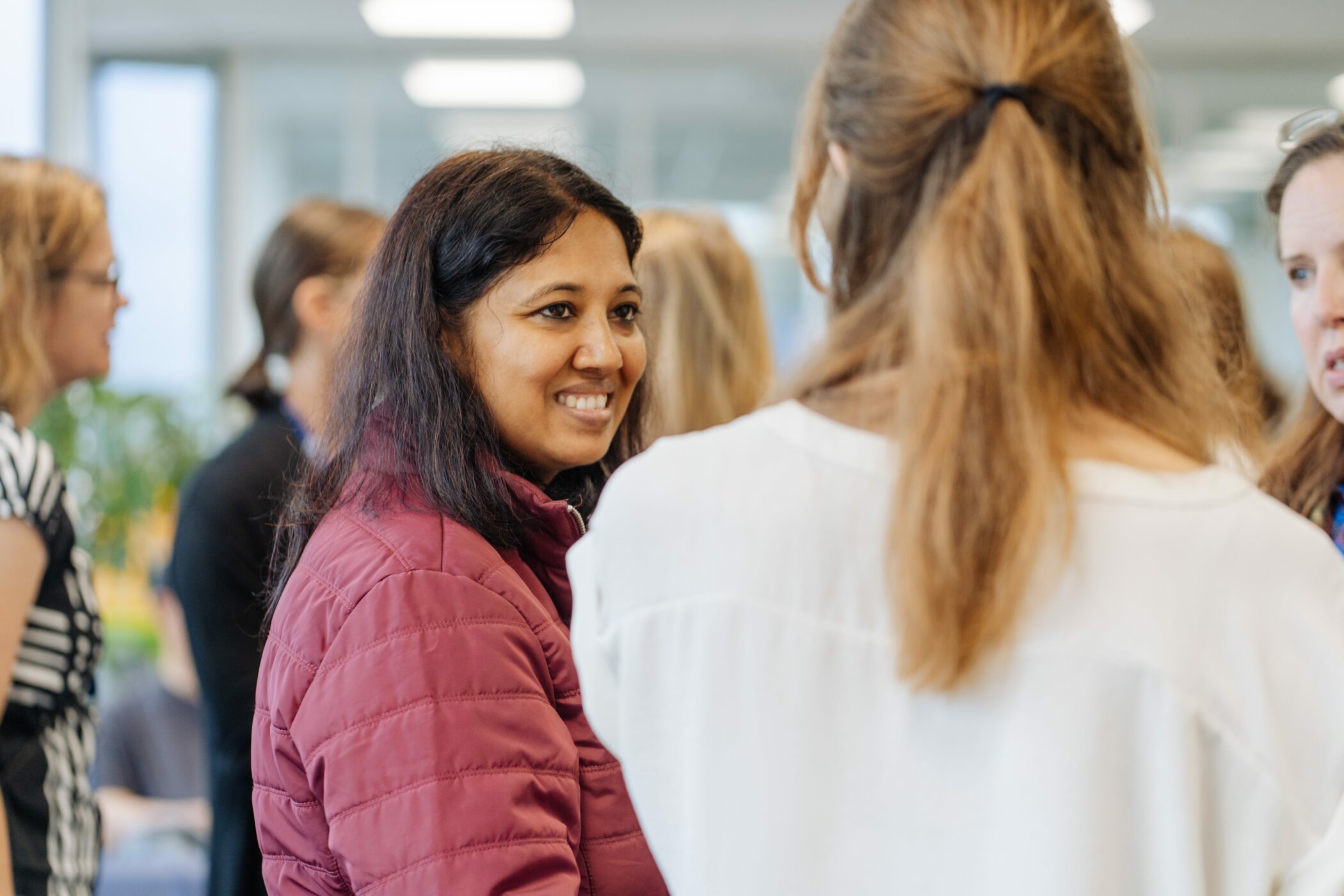
One of the highlights of our Primary Programme is our focus on outdoor learning. We believe spending time in nature helps children develop physical, social, and emotional wellbeing. Our students enjoy access to playgrounds, a nature area with a pond, a vegetable garden, an apple orchard, a mud kitchen, and an outdoor classroom.
Every week, our students in Early Years 1 to Grade 1 venture into the forest for hands-on learning experiences that support connections to nature and help them build a more holistic understanding of the world.
In Grades 2–5, students go on forest trips related to their studies. Learning outside the classroom can also include other activities, such as field trips, exploring nature, reading, practicing maths, or learning about nature itself.
We value multilingualism and international-mindedness. From Early Years 1, German is woven into our daily routines, projects, and outdoor learning, and from Kindergarten onwards, dedicated German lessons are part of the curriculum.
Our approach to language learning promotes not only communication skills but also global awareness, cognitive flexibility, and respect for different cultures.
Our Primary School is built around each child.
We take a collaborative, child-centred approach to teaching, with grade-level teams working alongside specialist teachers to ensure that every child receives the personalised attention they require.
Regular meetings allow us to track progress, celebrate achievements, and address any concerns. As an accredited International Baccalaureate® World School, we take pride in offering a well-rounded education that supports academic, social-emotional, and physical development.
We believe that parents are key partners in a child’s education, and by working together — teachers, parents, and students — we create a sense of belonging and wellbeing.
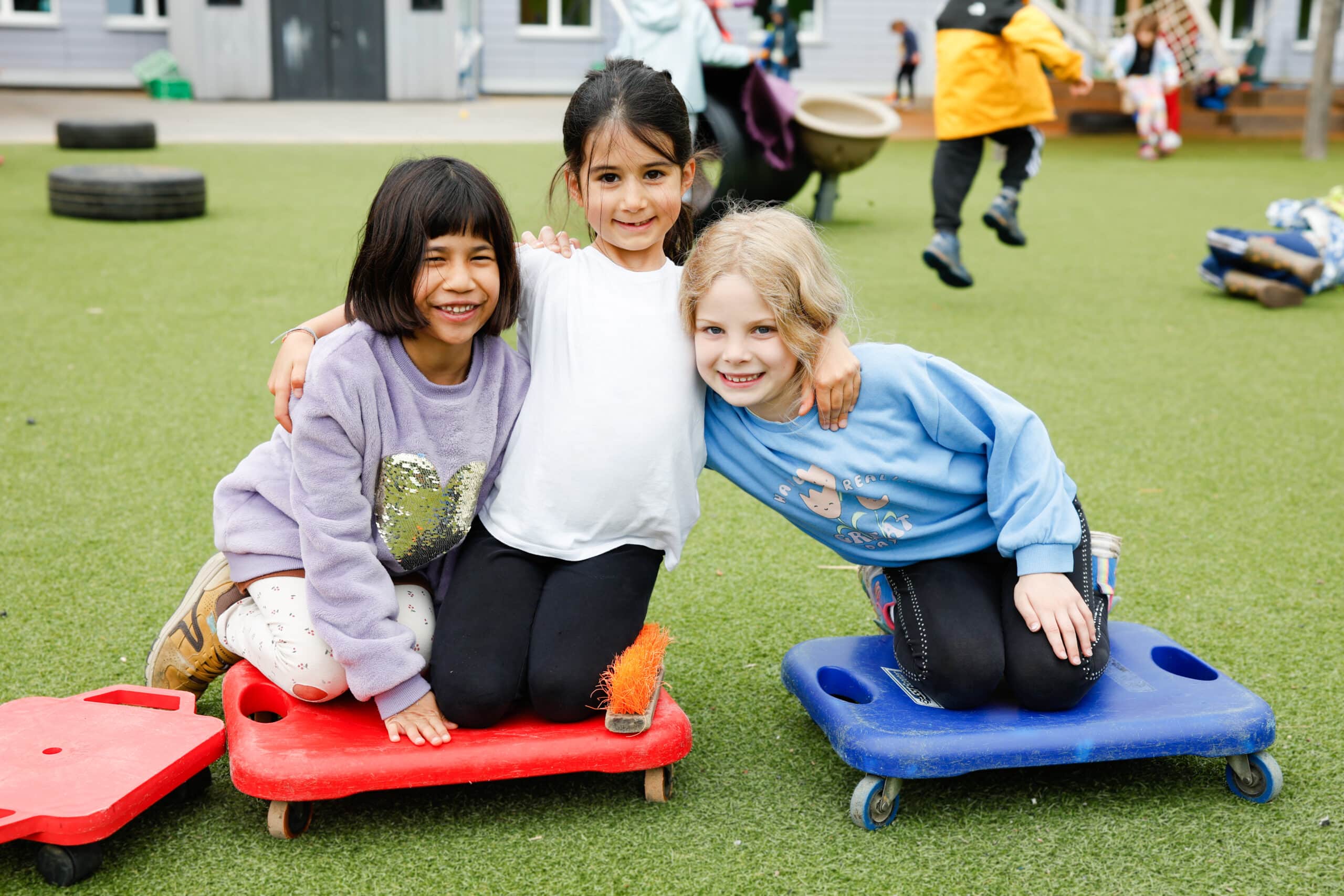
We understand that a flexible schedule is important for our youngest learners. That’s why we offer a range of options for Early Years students, with flexible attendance from three full days or four mornings to five full days a week.
For Kindergarten through Grade 5, school hours are 08:50 to 15:30, with an optional extended day until 18:00.
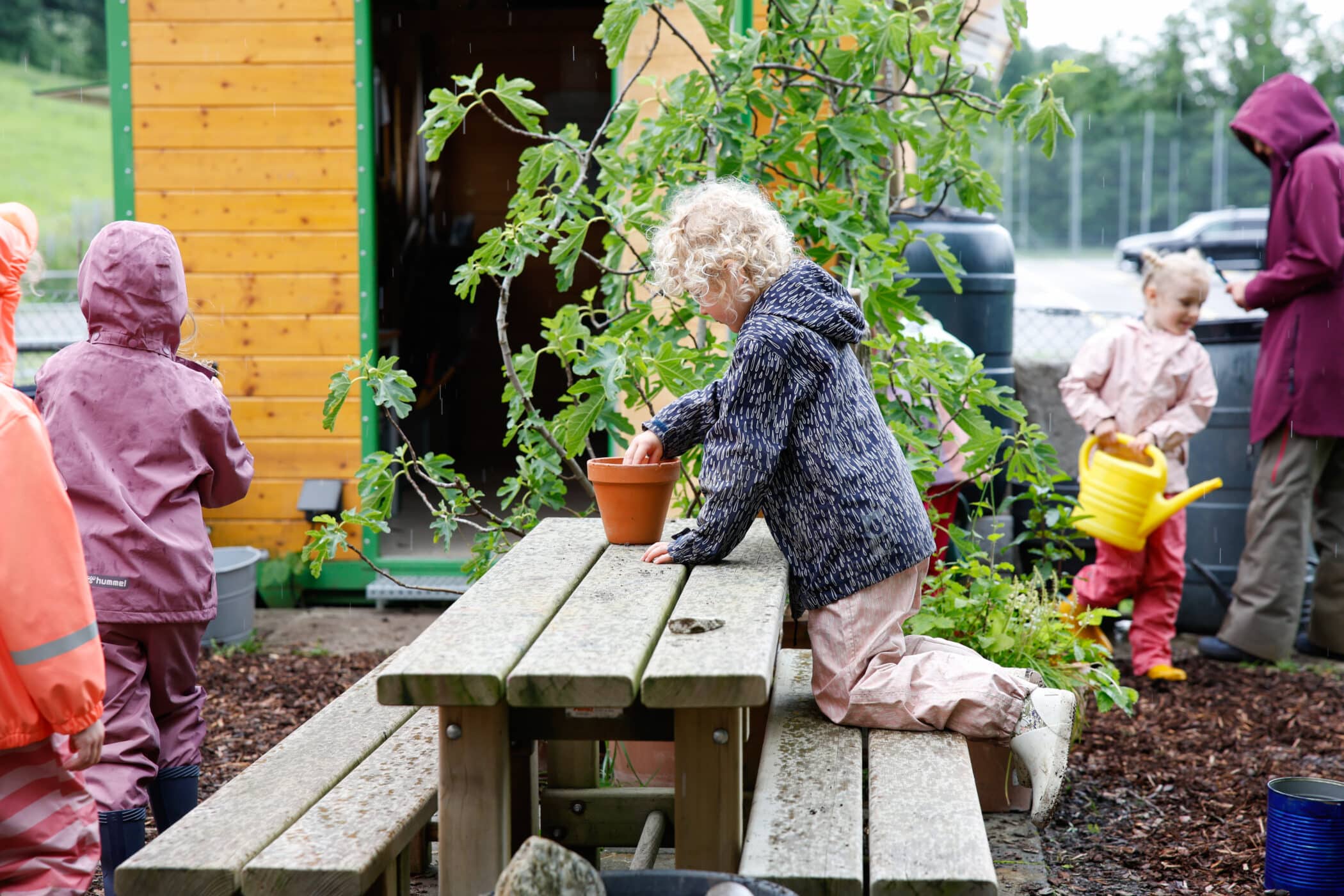
We invite you to visit our campus and experience firsthand how we inspire a love for learning and make our corner of the world a better, kinder place. Together, we help our children grow into thoughtful, engaged global citizens.